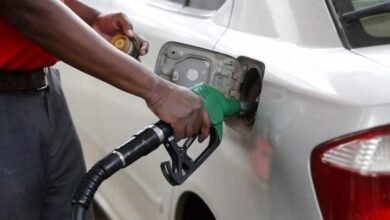
The Central Bank of Kenya (CBK) Governor Dr. Patrick Njoroge says he is seeking Ksh.116.6 billion in emergency support from the World Bank and International Monetary Fund (IMF).
The cash is meant to support Kenya’s response to the Coronavirus pandemic which has already caused negative economic impact in the country.
During a press briefing on Tuesday at post Monetary Policy Committee news conference at CBK building in Nairobi, Dr. Njoroge said the government had made request for an initial $50 million (Ksh5.3 bilion) meant for Health Sector and additional $300 million (Ksh 30.1 billion).
The Governor also revealed that $750 million (Ksh79.5 billion) has been sought from the International Monetary Fund (IMF) and will be geared towards budgetary support.
“Several countries have made the request for emergency funding from the international financial services, we too as Kenya has also indicated its interest in this.” he said.
“These are all official flows; some of them were not on our radar. This is coming to support ongoing emergency response and definitely build into our reserve.”
According to the CBK, the request for further funding serves to fit it’s purpose of ensuring the ongoing health crisis across the globe does not become worse off economic problem.
“We know we can get much larger shocks and that’s one of the reasons why we have insisted we do need insurance. We have been working with the IMF to put in place a program to cover ourselves from extreme shocks,” said Dr. Njoroge.
The regulator remains engaged with the IMF on the capture of a precautionary program as its external position remains exposed to greater shocks as talks towards a new Standby Credit Facility (SCF) from the institution drag on.
On Monday, the CBK through the Monetary Policy Committee lowered its base lending rate from 8.25 percent to 7.25 per cent. The regulator further trimmed its commercial bank reserve ratio to 4.25 for the first time in nearly eight years.
Both the CBK and the National Treasury have trimmed their economic growth projection to a low 3.4 and 3.6 per cent respectively as they price in the economic disruption brought about the virus’s crisis.





